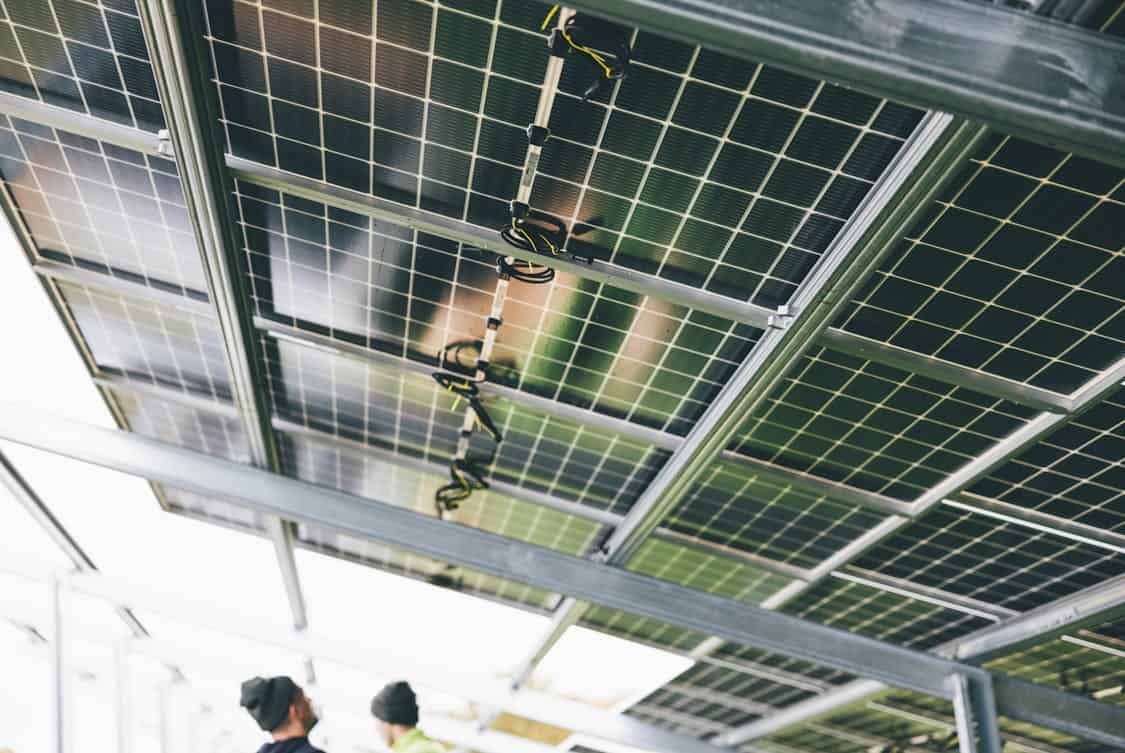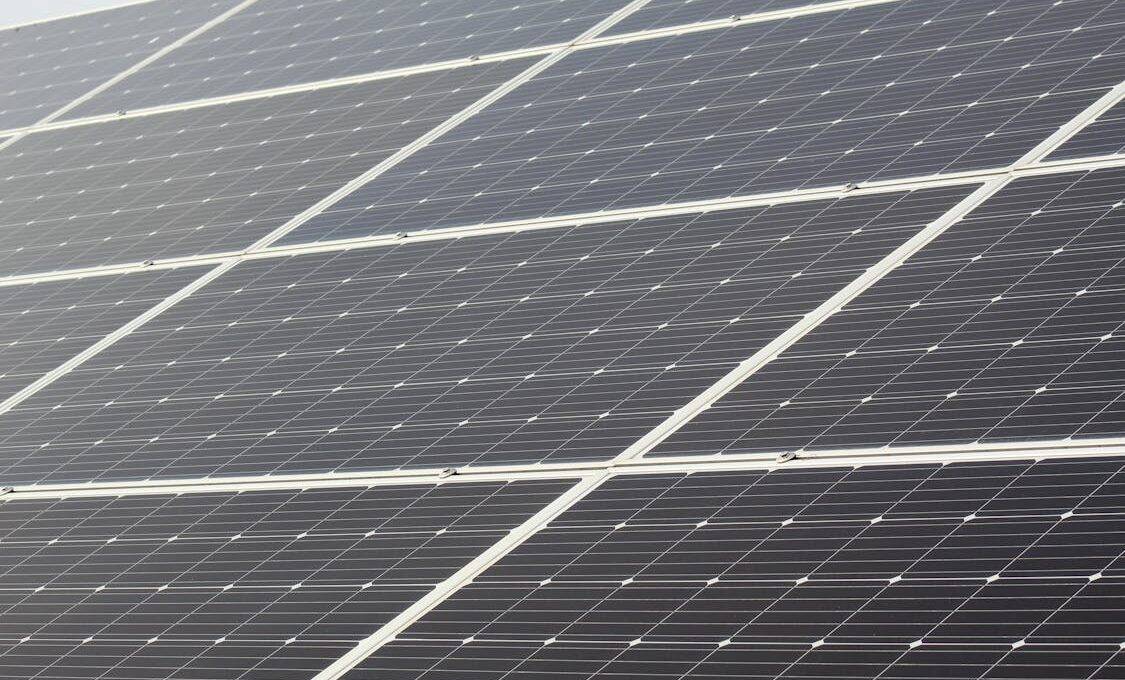Solar panels are a sustainable investment, turning sunlight into energy for homes and businesses. To keep these systems running smoothly, regular maintenance is essential.
This article outlines key practices that help maintain solar panels, ensuring they operate at peak performance.
Regular Cleaning
Dust, dirt, and debris can accumulate on solar panels, diminishing their efficiency. Regular cleaning is crucial, especially in dusty environments or areas with heavy bird activity.
Using a soft brush or sponge with mild soap and water can effectively remove grime. It’s best to clean the panels early in the morning or late in the afternoon to avoid the scorching sun, which can lead to streaks or damage.
If you prefer not to climb on the roof, hiring a professional service for cleaning can be a worthwhile investment. They have the right tools and experience to ensure the panels are cleaned thoroughly without causing harm.
Inspect for Damage
Visual inspections of solar panels should be part of your routine maintenance. Look for any signs of physical damage, such as cracks or chips.
These issues can arise from extreme weather, falling branches, or improper cleaning techniques. If you notice any damage, it’s wise to contact a qualified technician for repairs.
For expert advice and repairs, reach out to a trusted solar panel installation company henderson locals rely on. Addressing these problems promptly can prevent further deterioration and costly replacements.
Monitor Performance
Keeping an eye on the performance of your solar panels is essential for identifying issues early. Most modern systems come with monitoring software that provides real-time data on energy production.
If you notice a sudden drop in output, it could indicate a problem. Tracking performance trends over time can help you spot potential issues before they escalate.
Check Inverter Functionality
The inverter is a critical component of a solar system, converting the direct current (DC) produced by solar panels into alternating current (AC) for use in your home. Regularly check the inverter’s display.
It often shows error codes or performance issues. If something seems off, consulting a technician for a thorough check is advisable. A well-functioning inverter is key to maximizing energy output.
Trim Surrounding Vegetation
Trees and shrubs that cast shadows over solar panels can significantly reduce their efficiency. Regularly trimming back any nearby plants helps ensure that the panels receive maximum sunlight exposure.
Be mindful of the growth patterns of trees in your vicinity. Planning ahead can save you from unexpected shading issues in the future.
Conduct Electrical Checks

The electrical components of your solar panel system, including wiring and connections, should be checked periodically. Loose connections can cause inefficiencies and even pose safety risks.
If you’re not comfortable inspecting the electrical elements, it’s best to hire a licensed electrician who specializes in solar systems.
Look for Corrosion
Corrosion can affect the performance of solar panels, especially in coastal areas where saltwater is prevalent. Regularly inspect metal components for signs of rust or corrosion.
If you find any, addressing these issues early can prolong the lifespan of the system. Using protective coatings or materials specifically designed for marine environments can provide added protection against corrosion.
Review Manufacturer Guidelines
Each solar panel system comes with specific manufacturer guidelines regarding maintenance and care. Familiarizing yourself with these instructions is essential.
They often include recommendations on cleaning, inspection intervals, and warranty conditions. Following these guidelines can help you maintain your warranty and ensure your system operates efficiently.
Seasonal Considerations
Seasonal changes can impact solar panel performance. In winter, snow can accumulate on panels, blocking sunlight. If you live in an area that experiences heavy snowfall, it may be necessary to clear the panels gently to ensure they receive adequate light.
Use a soft shovel or broom to avoid scratching the surface.
In summer, excessive heat can affect performance. Adequate ventilation is key to keeping panels cool. If the installation allows, ensure there is enough space between the roof and the panels for airflow.
Address Pest Issues
Birds and other animals can sometimes create nests on or near solar panels. This can lead to blockages and potential damage to the equipment.
Regularly check the panels for any signs of nesting and take measures to deter animals from settling in those areas. Installing bird spikes or netting can help keep pests at bay.
Evaluate Battery Storage Systems
If your solar panel system includes battery storage, regular maintenance of the batteries is essential. Check the battery’s charge levels and ensure connections are secure.
Cleaning terminals can prevent corrosion and maintain efficiency. Always follow the manufacturer’s guidelines regarding battery care.
Track Incentives and Rebates
Staying informed about available incentives and rebates can be beneficial. Many regions offer financial incentives for maintaining and upgrading solar panel systems.
Research local programs that might assist you in keeping your system in top shape. This not only aids in performance but also enhances your return on investment.
Know When to Call a Professional
There are times when it’s best to leave maintenance to the experts. If you notice persistent performance issues, significant damage, or any electrical concerns, calling a professional is advisable.
Often, a technician can spot problems that may not be apparent to the untrained eye. Regular professional inspections can help nip issues in the bud before they become serious.
Document Maintenance Activities
Keeping a detailed record of maintenance activities is invaluable. Note dates of cleaning, inspections, and any repairs performed.
This documentation can help track the system’s performance over time and is useful should any warranty issues arise. Having a clear history of care can be beneficial for future buyers if you decide to sell your property.
Stay Informed About Technology Advancements
The solar industry is always advancing, with new technologies and methods for maintenance emerging regularly. Staying informed about these advancements can help you make better decisions regarding your solar investment.
Online forums, webinars, and industry publications are great resources for keeping up with the latest trends and techniques.
Be Mindful of Weather Conditions
Extreme weather events can take a toll on solar panels. After a storm, inspect your panels for debris, damage, or flooding. Taking prompt action can mitigate long-term issues.
If you live in an area prone to severe weather, consider investing in protective measures such as storm shutters or specialized mounting systems that can withstand high winds.
Educate Yourself on Local Regulations
Local regulations can impact how you maintain your solar panels. Some areas may have specific requirements for cleaning or inspections to ensure safety and compliance.
Familiarizing yourself with these regulations can help you avoid fines and ensure your system remains compliant with local laws.
Engage with Community Resources
Many communities have resources dedicated to solar energy. Engaging with local solar groups can provide helpful tips and insights from fellow solar users.
Networking with others in your area can lead to valuable information about maintenance practices and local professionals who can assist with any issues that arise.
Maintaining solar panels is not just about performance; it’s also about protecting your investment. By committing to regular care and staying informed about best practices, you can enjoy the many benefits that solar energy brings for years to come.





